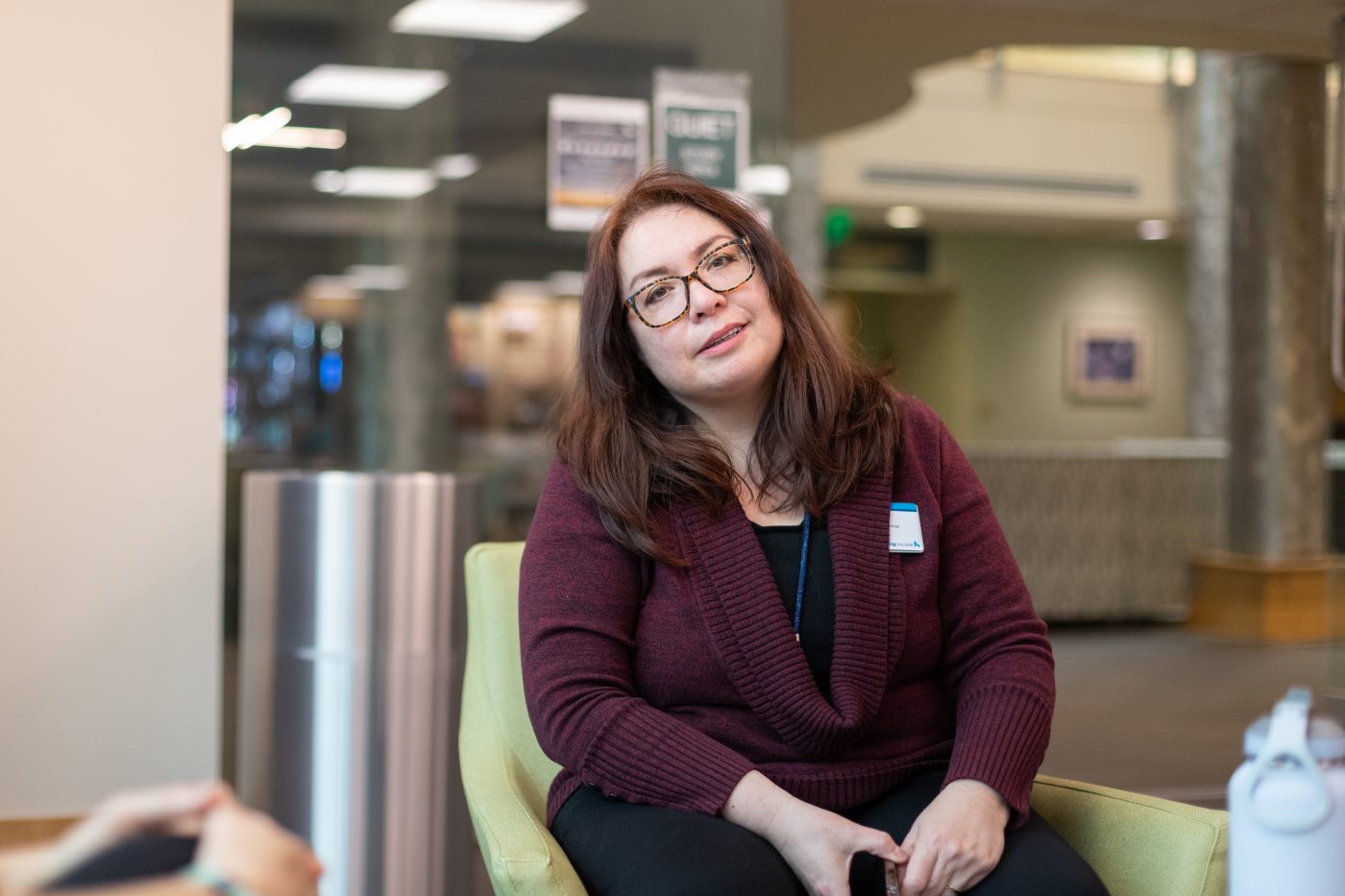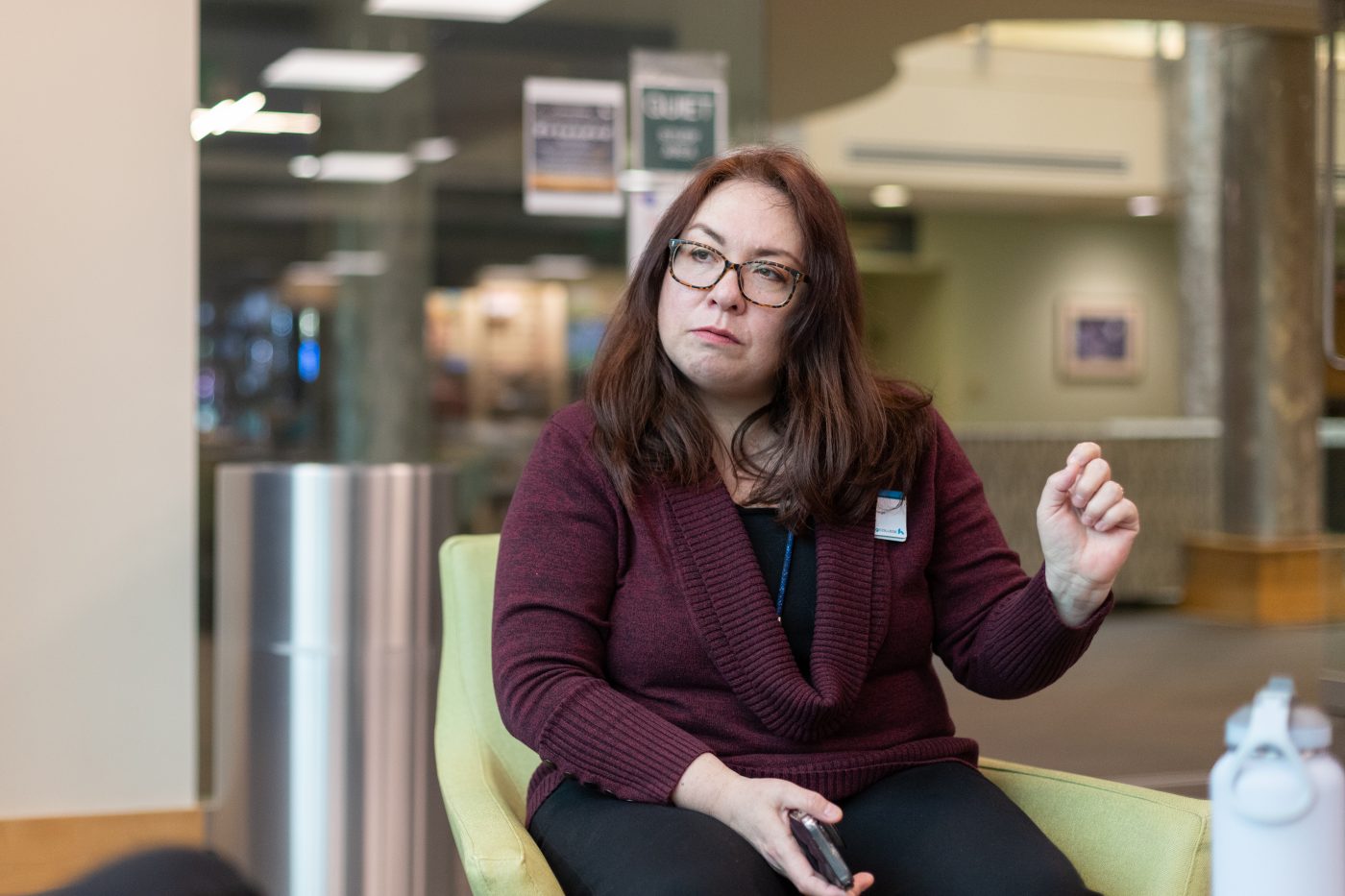Reflecting on Race with Dr. Rankin-Brown

Dr. Maria Rankin-Brown, humanities professor, grew up not giving much thought to race. She was a self-described “missionary kid” in Zambia Africa. Her father was of British/European descent but was born and raised in Zambia, and her mother was from Japan, and moved to Zambia which Maria knew as home. She says, “If someone were to ask me, ‘What are you?’ I would have said something like, ‘I’m a child of Christ’ without thinking about race.”
She was aware that she was a White African in a country whose population was mostly Black, but there wasn’t a feeling of not belonging. Her father’s family were Huguenots who fled Europe to Africa in the 1600s to escape religious persecution. Her mother was born and raised in Japan and moved to Africa once she married Maria’s father. Maria was raised on her father’s family farm in Zambia.

She didn’t reflect much on race because she grew up in the wake of colonialism, when White descendants of colonialists continued to hold a place of privilege in the country without reflecting on what that meant. She just knew she was happy running barefoot on the farm with her sister and dog.
The first time she became aware of race was when she was five years old and moved to Japan with her family. Even as a young girl at the time of the move, she says, “It was the first time I realized how race and not fitting in can be a barrier.” Maria says she doesn’t physically present as Asian, so she became “the other” at school and in the Japanese community.
“It’s nice to be a part of a group but hard when you don’t fit in.”
She points out one of the foundations of Japanese culture is the strong sense of community, but she felt as though she were on the outside looking in when she lived there. She says, “Japanese culture can be very homogeneous, expecting everyone to look and behave a certain way with a pressure for everyone to be the same, and I wasn’t ever going to look the same. It’s nice to be a part of a group but hard when you don’t fit in.”
Maria points out, “Most people don’t think about their race until they are ostracized for it. It is then that it becomes an issue.” This was the case for her as she was pushed to feel like “the other” in Japan. Her Japanese mother observed Maria struggling, so within five years, they returned to Africa, this time making Zimbabwe their home where Maria felt free to be herself again—a missionary kid not trying to fit any mold.

Her family spoke Japanese and Afrikaans/Flemish, and she learned English when she moved back to Africa. She wasn’t asked to identify what she was—she just was. Because she was friends with American missionary kids in Africa, when it came time to attend college, Maria chose to attend Pacific Union College. She eventually married an American and chose to stay in the U.S.
“Most people don’t think about their race until they are ostracized for it.”
In America, however, she notes people have a deeper curiosity about identity and often ask her what she is. When her father passed away when she was 20, she started to feel more of an identity with the Japanese heritage of her surviving mother. Now when she gets the common question of “What are you?” She says, “Well, I guess I have to be something. My mom’s Japanese, so I’ll say that.” She adds, “I’m someone who moves around who identifies as Asian, and not necessarily Asian American yet, as I am still learning what America is all about.”
Now that she doesn’t have the pressure to conform to Japanese culture, she has a fondness for it that she didn’t have as a child trying to be accepted by it. Her mother now lives with Maria and her husband, and Japanese heritage is a part of their everyday life including the food Maria loves the most: miso soup, rice, and fish. Some of these foods were not found in Africa, so Maria notes it’s a joy to celebrate that part of her identity with her mother now.
Asian American Pacific Islander (AAPI) Heritage Month

Maria says AAPI Month reminds us to celebrate who people are. She has observed a common question in America is, “What do you do?” rather than having a conversation to learn who someone is. AAPI Month for her is a time for others to learn who people are by being curious enough about others to hear their stories.
She says, “AAPI exists because if we don’t hear people’s stories, we don’t understand who they are.” She points out creating diversity, equity, and inclusion is everyone’s job of every race. It shouldn’t be relegated only to the groups who identify as in need. We should all want to be advocating for that so that we better understand who others are without making assumptions based on only our own experiences.
Print This Page